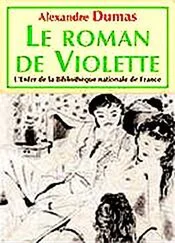Alexandre Dumas - The Hero of the People - A Historical Romance of Love, Liberty and Loyalty
Здесь есть возможность читать онлайн «Alexandre Dumas - The Hero of the People - A Historical Romance of Love, Liberty and Loyalty» — ознакомительный отрывок электронной книги совершенно бесплатно, а после прочтения отрывка купить полную версию. В некоторых случаях можно слушать аудио, скачать через торрент в формате fb2 и присутствует краткое содержание. Жанр: foreign_antique, foreign_prose, Историческая проза, на английском языке. Описание произведения, (предисловие) а так же отзывы посетителей доступны на портале библиотеки ЛибКат.
- Название:The Hero of the People: A Historical Romance of Love, Liberty and Loyalty
- Автор:
- Жанр:
- Год:неизвестен
- ISBN:нет данных
- Рейтинг книги:5 / 5. Голосов: 1
-
Избранное:Добавить в избранное
- Отзывы:
-
Ваша оценка:
- 100
- 1
- 2
- 3
- 4
- 5
The Hero of the People: A Historical Romance of Love, Liberty and Loyalty: краткое содержание, описание и аннотация
Предлагаем к чтению аннотацию, описание, краткое содержание или предисловие (зависит от того, что написал сам автор книги «The Hero of the People: A Historical Romance of Love, Liberty and Loyalty»). Если вы не нашли необходимую информацию о книге — напишите в комментариях, мы постараемся отыскать её.
The Hero of the People: A Historical Romance of Love, Liberty and Loyalty — читать онлайн ознакомительный отрывок
Ниже представлен текст книги, разбитый по страницам. Система сохранения места последней прочитанной страницы, позволяет с удобством читать онлайн бесплатно книгу «The Hero of the People: A Historical Romance of Love, Liberty and Loyalty», без необходимости каждый раз заново искать на чём Вы остановились. Поставьте закладку, и сможете в любой момент перейти на страницу, на которой закончили чтение.
Интервал:
Закладка:
Weber had located the Royal Family in Countess Lamarck’s rooms, but the comforts were limited. For instance there was no room for Countess Charny at supper and she talked of spending the night in a chair for want of a bed. But knowing the great favor in which the Queen held the countess, they placed a couch for her in the next room to the Queen’s.
The latter shuddered at this for she thought of the count being with his wife, and Andrea saw the emotion.
“There must be some corner for me elsewhere,” said she; “I will go find it.”
“You are right, countess,” said the King while Marie Antoinette mumbled something unintelligible. “We will do something better to-morrow.”
The King watched the stately countess go out, while he held the plate to his mouth.
“That lady is a delightful creature,” he said, “and Charny ought to be happy to find such a phoenix at court.”
The Queen leant back in her chair to hide her sensation, not from the speaker, but from his sister Elizabeth, who was frightened lest she had fallen ill.
The Queen did not breathe at ease till alone in her room.
She had heard her daughter say her prayers, speaking a little longer than usual as she was pleading for her brother who had gone to rest forgetting to say his.
Sitting alone at a table, somehow she had the panorama of her life pass before her.
She recalled that she was born on the second of November, 1755, the day of the Lisbon earthquake, which swallowed up fifty thousand souls and extended five thousand miles.
She recalled that the room she slept in, in France, at Strasburg, represented the Massacre of the Innocents and so frightened her in the flickering lamplight that she had always retained a terrible memory of her first night on French soil.
She recalled how, stopping at Taverney House, she had been shown in the gardens by Baron Balsamo the image of an unknown instrument for decapitation: this was the man who, under the name of Cagliostro, had exercised a fatal influence on her destiny, as witness his hand in the Queen’s Necklace trial; though she was advised that he had perished in the papal dungeons as a magician and atheist, had she not seen him this day in the mob during the halt at Sevres?
She recalled that in Madam Lebrun’s portrait she had unwittingly made her pose as the unfortunate Henrietta Maria of England, in her portrait, as Wife of Charles I. the Beheaded.
She recalled how, when she got out of her coach for the first time at Versailles, in that Marble Court where so much blood lately flowed on her behalf, a lightning stroke had flashed so extraordinarily that Marshal Richelieu had said: “An evil omen!” albeit he was a cynic not easily startled by superstition.
She was recalling all this when a reddish cloud, from her eyes being strained, thickened around her, and one of the four candles in the candelabrum went out without evident cause.
While she was looking at it, still smoking, it seemed to her that the next taper to it paled sensibly, and turning red and then blue in the flame, faded away and lengthened upward, as if to quit the wick, from which it leaped altogether. It was extinguished, as though by an unseen breath from below.
She had watched the death of this with haggard eyes and panting bosom, and her hands went out towards the candlestick proportionable to the eclipse. When gone out, she closed her eyes, drew back in her armchair, and ran her hand over her forehead, streaming with perspiration.
When she opened them anew, after ten minutes, she perceived that the flame of the third candle was affected like the rest.
She believed it was a dream or that she was under some hallucination. She tried to rise but seemed nailed to her chair. She wanted to call her daughter, whom she would not have aroused a few minutes before for a second crown, but her voice died away in her throat. She tried to turn her head but it was rigid as if the third light expiring attracted her eyes and breath. Like the other pair, it changed hue and swaying to one side and the other, finally shot itself out.
Then fear had such mastery that speech returned to her and that made her feel restored in courage.
“I am not going to distress myself because three candles happened to go out,” she said; “but if the fourth suffers the same fate, then woe is me!”
Suddenly, without going through the transitions of the others, without lengthening or fluttering to left or right as if the death-angel wing had wafted it, the fourth flame went out.
She screamed with terror, rose, reeled and fell to the floor.
At this appeal the door opened and Andrea, white and silent in her night-wrapper appeared like a ghost on the sill. When she had revived her mistress with the mechanical action of one impelled by sheer duty, the Queen remembered all the presage, and aware that it was a woman beside her, flung her arms round her neck, and cried:
“Save me, defend me!”
“Your Majesty needs no defense among her friends,” said Andrea, “and you appear free of the swoon in which you fell.”
“Countess Charny,” gasped the other, letting go of her whom she had embraced, and almost repelling her in the first impulse.
Neither the feeling nor the expression had escaped the lady. But she remained motionless to impassibility.
“I shall undress alone,” faltered the Queen. “Return to your room, as you must require sleep.”
“I shall go back, not to sleep but to watch over your Majesty’s slumber,” returned Andrea, respectfully curtseying to the other and stalking away with the solemn step of a vitalized statue.
CHAPTER VI
THE REVOLUTION IN THE COUNTRY
OUR intention being to temporarily abandon the fortunes of our high and mighty characters to follow those of more humble but perhaps no less engaging heroes, we take up with Sebastian Gilbert whom his father, immediately after his release from the Bastile, confided to a young peasant named Ange Pitou, foster-brother of the youth, and despatched them to the latter’s birthplace, Villers Cotterets.
It was eighteen leagues from the city, and Gilbert might have sent them down by stage-coach or his own carriage; but he feared isolation for the son of the mesmerists’ victim, and nothing so isolates a traveler as a closed carriage.
Ange Pitou had accepted the trust with pride at the choice of the King’s honorary physician. He travelled tranquilly, passing through villages trembling with the thrill from the shock of the events at Paris as it was the commencement of August when the pair left town.
Besides Pitou had kept a helmet and a sabre picked up on the battlefield where he had shown himself more brave than he had expected. One does not help in the taking of a Bastile without preserving some heroic touch in his bearing subsequently.
Moreover he had become something of an orator; he had studied the Classics and he had heard the many speeches of the period, scattered out of the City Hall, in the mobs, during lulls in the street fights.
Furnished with these powerful forces, added to by a pair of ponderous fists, plenty of broad grins, and a most interesting appetite for loiters-on who did not have to pay the bill, Pitou journeyed most pleasantly. For those inquisitive in political matters, he told the news, inventing what he had not heard, Paris having a knack that way which he had picked up.
As Sebastian ate little and spoke hardly at all, everybody admired Pitou’s vigorous paternal care.
They went through Haramont, the little village where the mother of one and the nurse of the other had died and was laid in earth.
Her living home, sold by Pitou’s Aunt Angelique, her sister-in-law, had been razed by the new owner, and a black cat snarled at the young men from the wall built round the garden.
Читать дальшеИнтервал:
Закладка:
Похожие книги на «The Hero of the People: A Historical Romance of Love, Liberty and Loyalty»
Представляем Вашему вниманию похожие книги на «The Hero of the People: A Historical Romance of Love, Liberty and Loyalty» списком для выбора. Мы отобрали схожую по названию и смыслу литературу в надежде предоставить читателям больше вариантов отыскать новые, интересные, ещё непрочитанные произведения.
Обсуждение, отзывы о книге «The Hero of the People: A Historical Romance of Love, Liberty and Loyalty» и просто собственные мнения читателей. Оставьте ваши комментарии, напишите, что Вы думаете о произведении, его смысле или главных героях. Укажите что конкретно понравилось, а что нет, и почему Вы так считаете.












